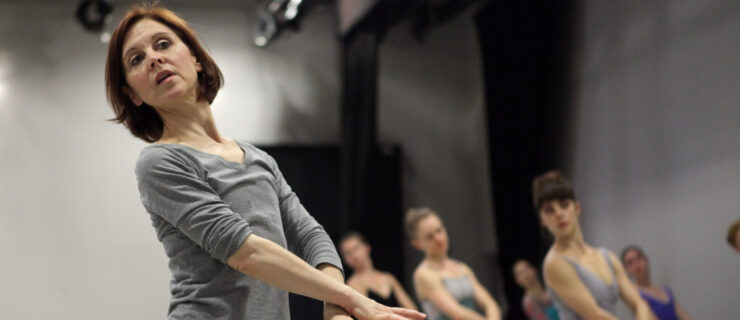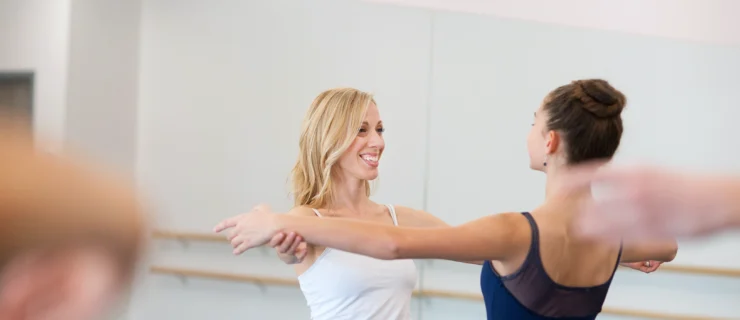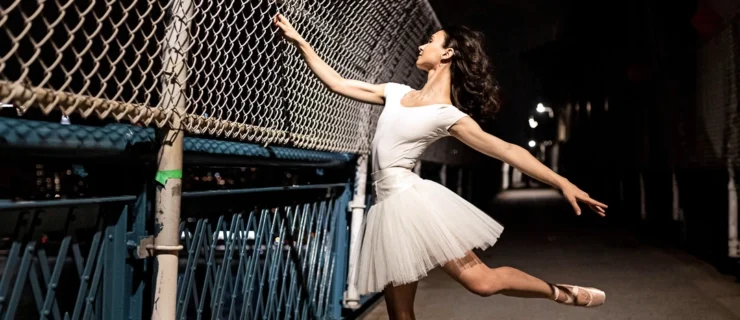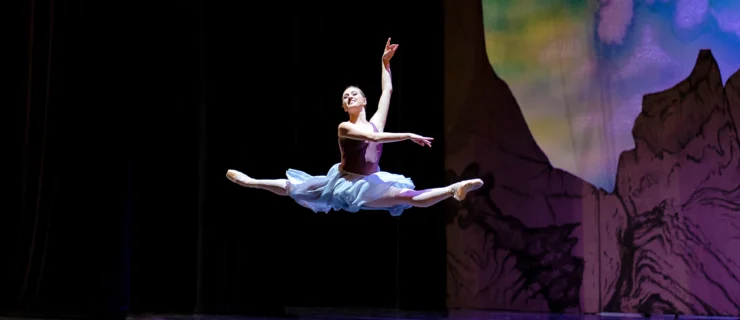Auditioning On a Budget: How to Plan Audition Tours Without Breaking the Bank
Let’s face it: Auditioning is expensive. Between a $100-per-night budget-hotel room, a $300 round-trip plane ticket, $40 for food per day and $25 to $40 in audition fees, you may be out hundreds of dollars for one audition—and potentially thousands before you land a contract.
When planning an audition tour, you have to weigh the travel costs with the probability that your investment will result in a job offer. Plus, doing it all on a tight budget may mean trying to perform your best on travel-stiff limbs, fast-food options and little sleep. To help, we asked three professionals for their best advice on planning successful audition tours that don’t break the bank.
Open Call vs. Company Class

rawpixel via Unsplash
With limited funds, you have to be strategic about deciding when travel expenses are worth the gamble. Boston Ballet II‘s associate director Peter Stark says invited opportunities are always better than open calls: “Your odds are going to go up exponentially if you can get invited to a company class or to an invite-only audition.”
From a spreadsheet of over 150 companies, he helps Boston Ballet II members highlight 15 to 20 targets. “The bigger net you cast, the more fish you’ll catch,” he explains. Then, he suggests asking a teacher or artistic staff member to help you by giving a recommendation. (If Stark feels strongly about someone’s chances at a company, he emails the dancer’s audition package on his or her behalf.) This method may yield multiple high-probability options before you spend a dime on travel.
Kill Multiple Birds with One Stone
Smuin Ballet
dancer Erica Felsch recommends asking for two days with the company to take the pressure off a single class. She also suggests auditioning for multiple companies in one city (e.g., the large classical ballet company and a smaller contemporary troupe).
If you’re arranging a multicity audition tour, be strategic geographically. For example, along the six-hour drive from Nashville Ballet to BalletMet in Columbus, Ohio, you could also hit Louisville Ballet in Kentucky and Cincinnati Ballet. That’s four companies for one trip. You might spend the same amount of time and money flying across the country for a single audition.
To Drive or Fly?

Luigi Manga via Unsplash
Driving comes with advantages. Oklahoma City Ballet dancer Carrie Ruth Trumbo had a rule for her audition tours: “If it was seven hours and under away, I would drive because it was worth the financial savings. Anything more than that, I would fly.”
When Felsch auditioned for Smuin Ballet, she drove 12 hours through the night from Arizona to San Francisco. On just two hours of sleep, she wasn’t confident about her performance (although she did land the job). If you know that you can’t dance well after being crammed in a vehicle for hours, you might opt for a one-way flight to the audition city and a long bus ride home.
Make the Best of Open Calls
None of the professionals here recommended traveling long distances for a single open call; it’s not a good use of your money for the chance to get noticed as one in a hundred. But if you live near an audition-tour hub city, Felsch says, it’s worth paying open-call fees. If you have no other option than to travel long distances, prioritize your dream company, as well as auditions that take place in the same weekend. It will likely cost less to spend three days in one place than to travel back and forth multiple times.
The European Advantage

NG via Unsplash
Overseas travel isn’t always as expensive as you’d think, says Trumbo. At the time of her European audition tour, she was training in Las Vegas, an inexpensive city to fly in to and out of. Once in Europe, she bounced between hostels, which can cost as little as 20 euros per night. Plus, she says that European companies don’t typically charge audition fees for open calls.
Stark adds that mentioning your overseas travel plans in your introductory email is a great way to get more company-class invitations. He says companies are usually understanding when dancers say they’ll be in Europe for one audition and would like to schedule another.
Two Words: Couch Surf
Trumbo and Felsch agree that the best money-saver is couch surfing, either by leveraging your own network of family and friends or by reaching out to a company dancer. “I think people would be surprised how friendly and willing dancers are to help each other out, because we all know that we don’t have the money,” says Felsch.
The dance world is small, so ask a mutual contact for an email introduction. It also doesn’t hurt to ask company managers if they know of dancers willing to board auditionees (or to recommend a budget hotel nearby). Trumbo pays the favor forward by putting up friends of friends auditioning for OKCB. After all, she says, “everyone’s been there.”
Money-Saving Travel Tips

Joshua Rawson Harris via Unsplash
- Flights are less expensive on weekdays, says Felsch. Aggregators like Scott’s Cheap Flights, Skyscanner, Kayak and Hipmunk can help you find the cheapest options, while Wanderu works similarly for bus and train travel.
- Don’t stay far away from the audition site. “Make sure the hotel is in close proximity,” says Felsch, since cab fares add up quickly.
- Consider public transportation—just make sure you know the route and account for traffic and train delays.
- Look for hotels with free perks like continental breakfast and airport shuttle service.
- Buy nonperishable snacks in bulk and pack them for travel and audition fuel.
- Instead of going out to eat, Trumbo suggests finding prepared foods at a local grocery store.
- Only pack a carry-on, says Felsch. It saves luggage fees; plus, replacing dance bag necessities from a lost suitcase is expensive at best (impossible at worst!).
- Don’t underestimate old-fashioned saving. Felsch recommends putting away a little bit from your paycheck each month so that you have some cushion when audition season rolls around.
Softening the Financial Blow
A flexible part-time job can help offset audition expenses. “I saved up beforehand and worked extra after the fact, at a restaurant and by teaching,” says Trumbo. If you’re a freelance dancer, you can offer teaching or work-study at a local studio in exchange for classes, which add up when you’re trying to maintain your technique between companies.






